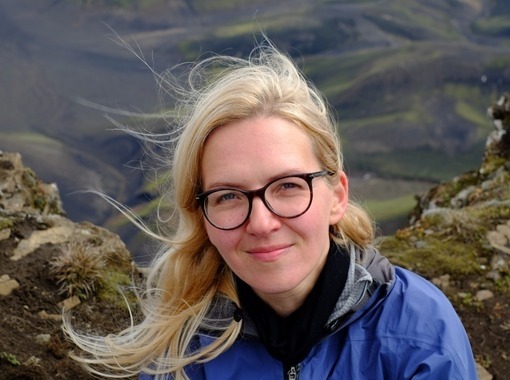Doctoral defence in Tourism Studies - Edita Tverijonaitė

Aðalbygging
The Aula
Doctoral candidate: Edita Tverijonaitė
Dissertation title: Nature-based tourism in renewable energy landscapes: Attitudes of tourism stakeholders.
Opponents: Dr. Bohumil Frantál, Senior Research Scientist at the Palacký University, the Czech Republic & Dr. Marianna Strzelecka, Senior Lecturer at the Linnaeus University, Sweden.
Advisor: Dr. Anna Dóra Sæþórsdóttir, Professor at the Faculty of Life and Environmental Sciences, University of Iceland.
Doctoral committee: Dr. Rannveig Ólafsdóttir, Professor at the Faculty of Life and Environmental Sciences, University of Iceland and Dr. C. Michael Hall, Professor at the Department of Management, Marketing and Entrepreneurship, University of Canterbury, New Zealand.
Chair of Ceremony: Dr. Snæbjörn Pálsson, Professor and Head of the Faculty of Life and Environmental Sciences, University of Iceland.
Abstract
With increasing renewable energy infrastructure (REI) developments and growing nature-based tourism (NBT), their encounters are becoming more likely. To facilitate sustainable development of both, it is important to gain more knowledge on the complex interrelationships between NBT and REI, which is the overarching aim of this thesis. The thesis provides an overview of existing knowledge on interrelationships between REI and tourism by conducting a review of relevant academic literature. It furthermore investigates the NBT-REI nexus by using a case study approach with a focus on the Icelandic Central Highlands, which contain vast wilderness areas and are important for both NBT and renewable energy harnessing. The primary data for this thesis was collected by employing questionnaire surveys, semi-structured interviews, open-ended diaries, and participant observation. The results reveal low compatibility of present-day NBT and REI, especially in areas perceived by tourism stakeholders as wilderness. Tourists view proposed REI as highly unsuitable in wilderness areas due to its negative impacts on wilderness experience. Correspondingly, tourism service providers prefer to limit REI developments in natural areas of the Central Highlands. According to tourism service providers, proposed wind farms are more suitable in areas with few tourists, limited attractions, low degree of naturalness, limited visibility of wind turbines, and urgent local need for energy. Notably, tourism service providers tend to perceive the impacts of proposed REI on NBT as more negative compared to existing REI. The perceived spatial extent of these impacts varies among tourism service providers. It depends on the reasoning used while estimating the impact areas, which falls into three categories: visibility of REI, tourist mobility, and changes in travel patterns and tourism demand due to REI. These findings suggest that tourism destinations should be viewed as elements of larger tourism networks, which are likely to be impacted by REI. Tourism service providers view the Central Highlands and its wilderness as a valuable resource that should be protected from further REI developments. However, issues such as ensuring access to the area might lead to conflicts between NBT and nature conservation and hinder preservation of wilderness. The findings of this doctoral thesis demonstrate that the context surrounding each REI project, namely various factors related to its location, REI itself and the perceptions and preferences of tourism stakeholders play a crucial role in shaping potential impacts of REI on NBT. Therefore, they should be taken into consideration when planning REI developments in natural areas.
About the doctoral candidate
Edita Tverijonaitė was born and grew up in Lithuania. She finished her BA studies in German Philology at Vilnius University in 2005. In 2008 Edita moved to Iceland, where she obtained a MA degree in Applied Studies in German in Tourism and Communication from the University of Iceland in 2014 and a MS degree in Environment and Natural Resources from the same university in 2017. Before starting her doctoral studies Edita worked as a research assistant at the Department of Geography and Tourism Studies, University of Iceland.
Edita Tverijonaitė



